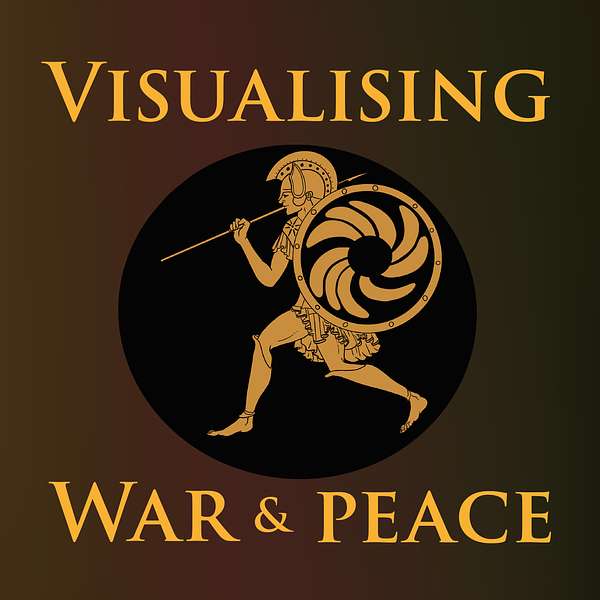
Visualising War and Peace
How do war stories work? And what do they do to us? Join University of St Andrews historian Alice König and colleagues as they explore how war and peace get presented in art, text, film and music. With the help of expert guests, they unpick conflict stories from all sorts of different periods and places. And they ask how the tales we tell and the pictures we paint of peace and war influence us as individuals and shape the societies we live in.
Visualising War and Peace
Peace and Conflict in Jivana Yoga
In this episode, Otilia interviews Jonathan Fisher, a founding member of the Sadvidya Foundation, which works to preserve ancient Eastern teachings of yogic philosophy. These teachings aim to promote peace and inner happiness for all humanity. Guided by dedicated practitioners, the foundation offers programs, publications and retreats to bring this ancient belief system to the modern world. In discussion with Otilia, Jonathan discusses his personal views and some central tenets of the yogic philosophy that he teaches. Along the way, his reflections raise some interesting questions about what drives conflict amongst humans, and what peace and peace-building look like through a yogic lens.
The episode begins with Jonathan discussing the concepts of love, care, and peace from the perspective of yogic philosophy. He reflects on the pursuit of happiness as something which can both foster peace and bring about conflict. He stresses the importance of seeking happiness without becoming too 'attached' to the things, places or activities that make us happy, since attachment can lead in time to disappointment, frustration, competition with others and conflict. The conversation then focuses on worldly detachment as a practical (not just cerebral) route to peace, from the yogic perspective. Jonathan and Otilia end by discussing the relationship between internal and external peace, and Jonathan emphasises the importance of education within the family as well as in more public settings for laying the foundations for both.
The conversation underscores the value of delving deeper into different belief-systems, philosophies and practices from all around the world, to better understand how peace and conflict have been conceptualised by others, and to explore different approaches to achieving or resisting them. This conversation offers just a brief flavour of the rich insights that yogic philosophy can offer into how we visualise peace and reduce conflict, both personally and geopolitically, and we are grateful to Jonathan for sharing his personal views and pointing us in some interesting new directions. As the Visualising Peace team continues to research care, self-care, inner peace and their impact on interpersonal, intergroup and international peace-building efforts, we will dig into some of the questions which Jonathan's reflections raise and expand our scope to research a range of belief systems.
We hope you find Otilia and Jonathan's conversation interesting. For more information about individuals and their projects, please visit the University of St Andrews' Visualising War website and the Visualising Peace Project. For a version of our podcast with close captions, please use this link.
Music composed by Jonathan Young
Sound mixing by Zofia Guertin